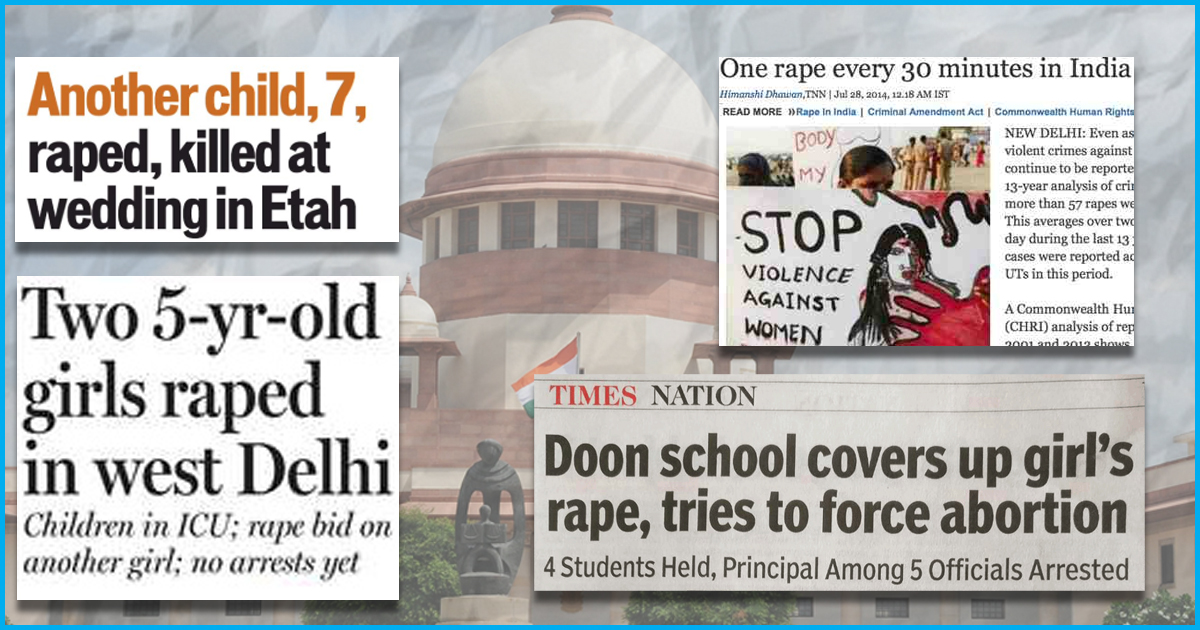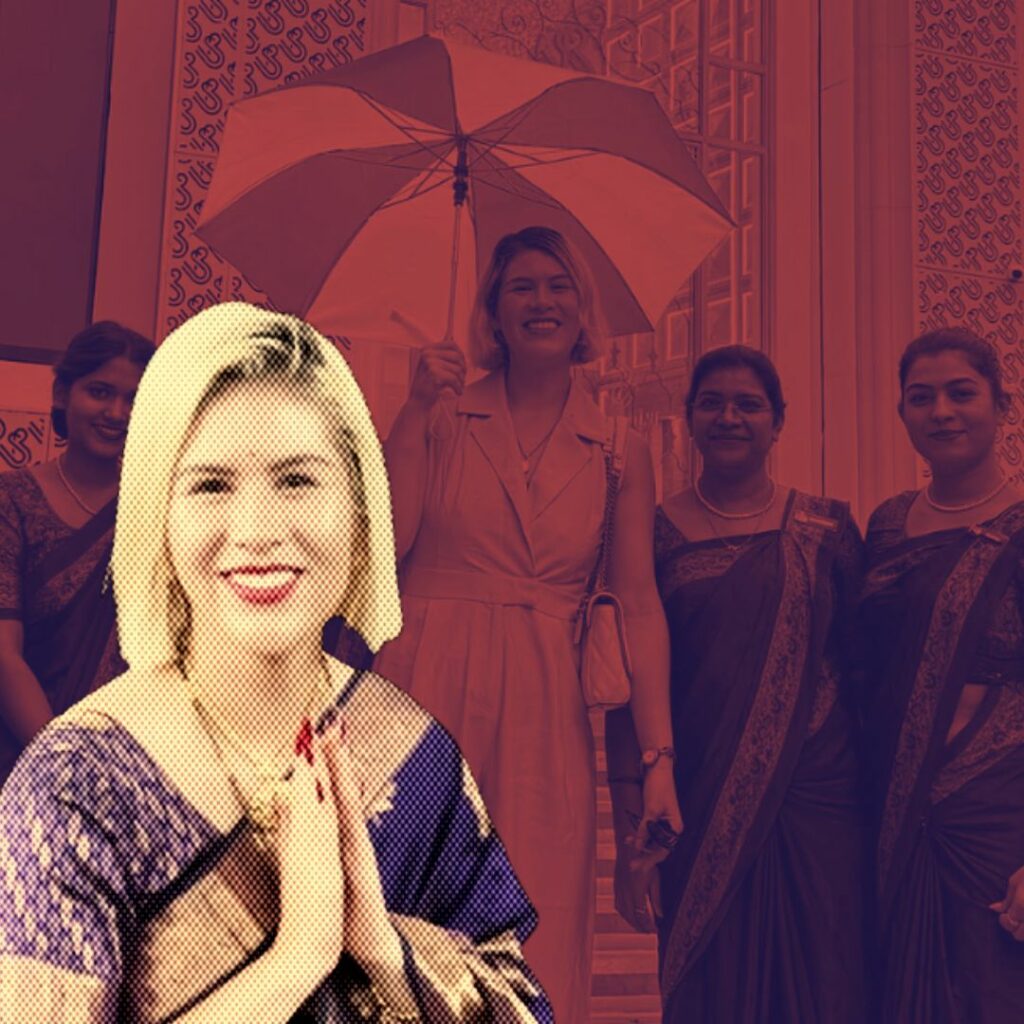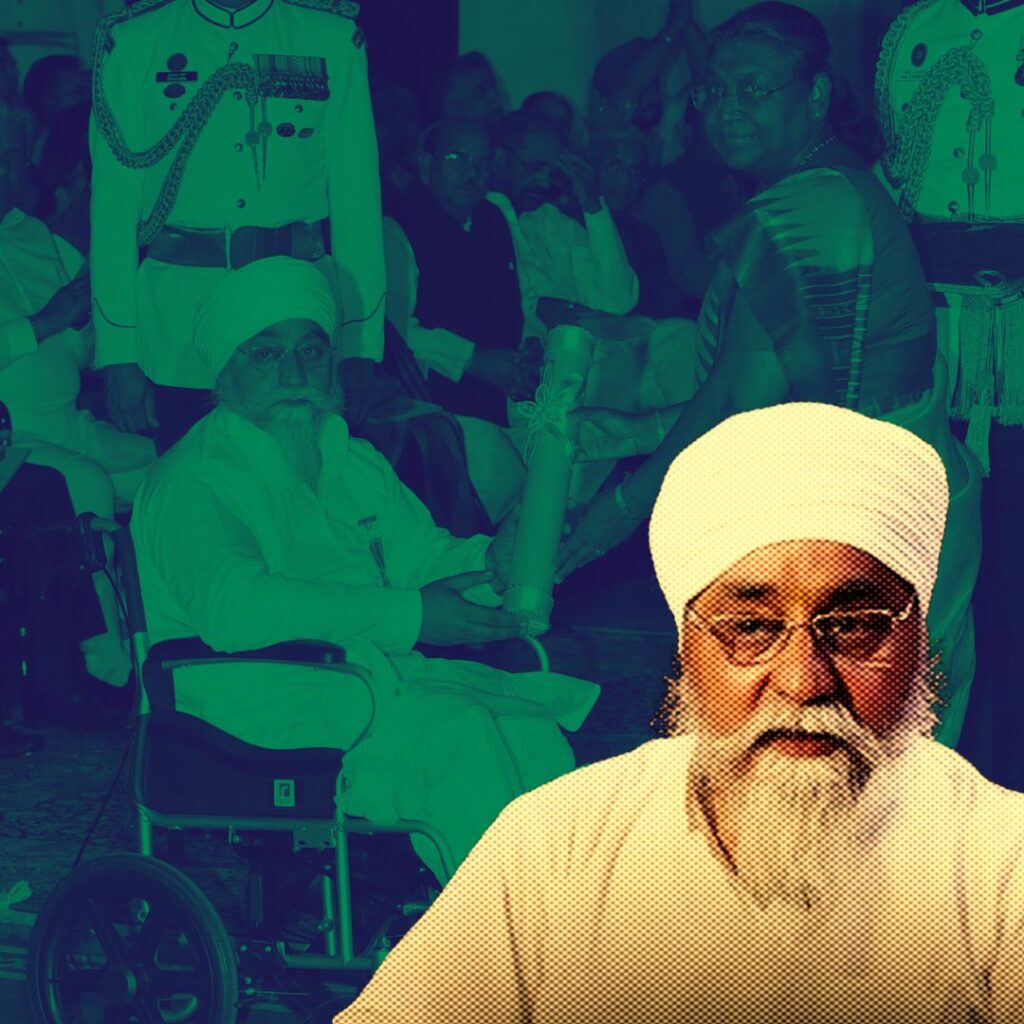Media organizations and law-enforcement agencies today were barred by the Supreme Court from revealing the identity of rape victims and sexual assault victims, whether they are dead or alive. A number of guidelines were laid down by the Supreme Court to safeguard the dignity of these victims, saying that their identity cannot be revealed at public rallies or social media platforms either.
The identity of victims cannot be disclosed
“Police or forensic authorities cannot disclose the names of rape victims either, even with the parents’ consent,” a bench of Justices Madan B Lokur, S Abdul Nazeer and Deepak Gupta ruled on a Public Interest Litigation (PIL), which was filed by advocate Nipun Saxena. It further said that nobody can place FIRs of sexual assault cases on the public domain, especially those that include minors, reported NDTV.
In the wake of the 2012 Nirbhaya gang-rape case, the court had been moved by advocate Saxena to seek proper measures to ensure women’s safety at public places. Unfortunate as it is, the Supreme Court expressed remorse over the victims of sexual assault being socially boycotted and treated as untouchables and the harassment that they are often subjected to.
The Supreme Court was especially bitter about the fact that protest rallies are often taken out in the name of sexual assault victims, turning them into icons at the rally.
No identity can be revealed even with the parents’ nod
Earlier, sexual assault victims’ names could be disclosed with the parents’ nod, like in the 2012 Nirbhaya gang-rape case, but now even the parents’ consent cannot allow the names to be released in any manner unless given permission by the court. The identities of even the dead or those of unsound mind cannot be disclosed in any manner,” the court said.
Widespread protests were held earlier this after the gang-rape and murder of a minor in Kathua district of Jammu and Kashmir, and the way in which the girl’s identity was disclosed during the time enraged many rights groups.
The Supreme Court, in the guidelines that it laid down for the media, ruled that no rape survivor can be interviewed unless they personally reach out to the concerned agency. Besides this, states and union territories were instructed by the Supreme Court to install “one-stop centres” with a year in each district, in order to counsel and rehabilitate rape survivors. Further, forensic lab authorities have to submit reports of sexual assault victims to the court in a sealed cover in order to protect their identity.
What Senior advocate Indira Jaising has to say
The court is being assisted by senior advocate Indira Jaising as an amicus curiae, and she told the Apex Court that a “parallel trial” was being run by the media in sub-judice matters and that guidelines should be framed how cases of crimes against women can be reported, The Economic Times reported.
Jaising further said that information was being leaked by the police to the media even before a chargesheet is being filed before a competent court, which meant interfering in the administration of justice.
Referring to the Kathua gang-rape and murder case, she said that it had been pronounced by the media that some of the accused were innocent, even before the charge sheet had been filed in the court.
Earlier, Jaising had said that there was a balance required for the victims’ rights and the rights of the media to report such incidents. For the same, section 228-A of the Indian Penal Code, which deals with disclosure of sexual assault victims’ identity, should be interpreted by the court. The court should also interpret provision 23 of the Protection of Children from Sexual Offences (POCSO) Act, which deals with the procedure that the media must follow, along with the Contempt of Courts Act.
What the law says
Following the 2012 Nirbhaya gang-rape case, Shashi Tharoor had wanted the 23-year-old Delhi girl’s identity to be revealed, so that the proposed anti-rape law could be named after her. But according to the law of the land, the identity of a sexual assault or rape victim cannot be revealed, and doing so is punishable under Section 228-A of the Indian Penal Code, said a report by News18.
Anyone guilty of publishing the name of a sexual assault victims might face punishment up to two years of imprisonment and shall be liable to fine.
Before the Supreme Court’s ruling today, there were certain circumstances under which the identity of a rape victim could be disclosed, reported The Wire. First, a written instruction by the officer investigating a particular case or the officer-in-charge of the police station could allow the identity of a rape victim to be revealed. Second, with the authorization in writing by the victim, the disclosure of the name could have been possible. Third, if the victim was dead or minor or of unsound mind, the name could be disclosed by the authorization in writing by the victim’s next kin. This is what had happened in Nirbhaya’s case with her parents claiming that they wanted the world to know her name.
While the new ruling may protect the identity of several victims and save them from harassment from society, families like that of Nirbhaya may be eager to reveal the name of the victim because they believe, and rightly so, that it is the accused who is at fault and not the victim, so there is nothing to be ashamed to reveal her name.
Whether the identity of a victim is known or not, she deserves to live with dignity. It is the accused who should be ashamed, not the survivor.
Also Read: Big Names From Film And Music Industry Called Out In #MeToo Movement










